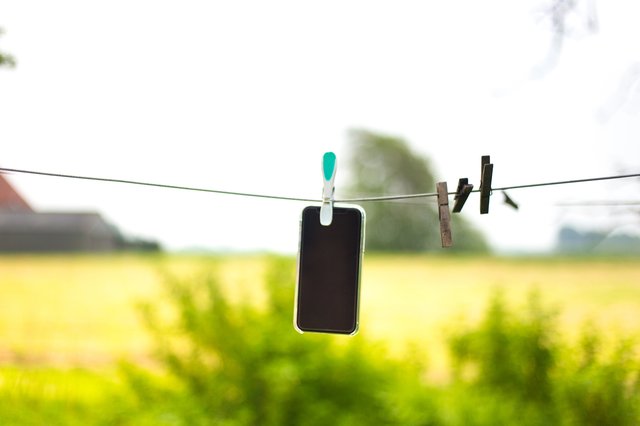Eric Athas
March 25, 2024
A few years ago, a Google employee sent an email to thousands of her co-workers: What if for six weeks straight, you spent one night per week without technology?
The email was from Laura Mae Martin, Google’s executive productivity adviser, a role that, among other things, was created to help staff members foster healthier relationships with their gadgets and apps. After she sent the note, Ms. Martin was flooded with responses from co-workers eager for a respite from some of the very products they helped build. Thousands of employees have since participated in the annual “No-Tech Tuesday Night Challenge,” said Ms. Martin, author of the upcoming book “Uptime: A Practical Guide to Personal Productivity and Wellbeing.”
The problem she was trying to solve isn’t unique to Google workers. One survey found that most Americans say they spend too much time on their phones. But dramatic solutions — a digital detox, a phone downgrade or a complete exit from social media — may feel impractical.
Is it possible to have a healthy relationship with technology while still using it daily? Fortunately, according to experts, the answer is a resounding yes.

Start with one simple question.
You know that urge you get to reach for your phone without realizing it? And then, before you know it, you’re an hour into a social media binge?
If you want to peacefully coexist with technology, you need to get a handle on those impulses. Start by noticing when you have an urge to lift your phone or open social media on your browser window, said Richard J. Davidson, the founder and director of the Center for Healthy Minds at the University of Wisconsin-Madison.
By becoming conscious of what you’re about to do, you’re interrupting an automatic behavior and awakening the part of your brain that governs self-control, he said. As one research article suggests, awareness of your actions can help you rein in bad habits.
“When you become aware of the urge, simply ask yourself, ‘Do I really need to do this right now?’” Dr. Davidson said.
Asking that question may help you pause, reflect on and resist the temptation to check your device. And let’s be realistic: Sometimes you may decide to indulge in some screen time. But by being conscious of your urges, you can become more intentional about your habits, Dr. Davidson said.
Take the “mobile” out of your mobile devices.
Dr. Anna Lembke, a professor of psychiatry and addiction medicine at Stanford University School of Medicine, said one of the biggest problems with smartphones is what she calls “texting while running to catch a bus.” Using our devices while we’re on the move — walking from meeting to meeting, taking a child to school or catching a bus — prevents us from being more engaged in our lives, Dr. Lembke said.
“We’re missing out on a wealth of information and signaling in the world around us, and also depriving ourselves of the opportunity to process and interpret what we’ve experienced,” she said.
One way to create harmony with your technology is to limit your phone use when you’re on the move. Headed out for a walk? Turn off your notifications. Going to grab a coffee? Leave your phone on your desk. If you’re feeling brave, try powering down your phone while in transit, said Dr. Lembke, who wrote “Dopamine Nation: Finding Balance in the Age of Indulgence.” It won’t buzz with notifications, text messages or phone calls, which Dr. Lembke said could help you focus on the world around you.
Schedule tiny tech breaks.
Extended vacations from your gadgets may not be possible. But if you’re trying to spend less time staring at your screens, 10- or 15- minute breaks might be a more practical option, said Dr. Adam Gazzaley, a neuroscientist at the University of California, San Francisco and author of “The Distracted Mind: Ancient Brains in a High-Tech World.” You might take a quick walk, close your eyes, work on a puzzle or read a book.
Another trick: Put tech breaks in your calendar, Dr. Gazzaley said. It may feel odd to schedule something like “take a phone-free walk,” but it shouldn’t if it’s a priority, he said.
Control your environment.
Don’t rely on your willpower alone to keep your screen time down, said James A. Roberts, an expert on consumer behavior at Baylor University. Instead, tweak your surroundings.
“Anything you can do to create an environment that makes it as easy as possible to distance yourself from the phone will be helpful,” said Dr. Roberts, who wrote “Too Much of a Good Thing: Are You Addicted to Your Smartphone?”
Here are a few things you can try:
- Get an alarm clock. A phone alarm forces you to pick up your device upon waking up, making it far too easy to start reading email and alerts, Dr. Roberts said. But a stand-alone alarm clock allows you to leave your phone untouched until you decide it’s time to dive in.
- Appoint an accountability partner. Dr. Roberts suggested asking a family member or friend to remind you to put down your device when you’ve been on it for too long, when someone’s trying to have a conversation with you, or at other moments when it is disrupting life in the offline world.
- Delete social media from your phone. To manage social media use without quitting it entirely, you’ll need to make it less accessible, Dr. Roberts said. One tip he suggested is to delete it from your phone but keep it on your computer so you can still use it for work or keeping in touch with family and friends.
Make the technology work for you.
One thing experts agreed on: To forge a healthy relationship with technology, you need to be in control of it and not the other way around. Think about your gadgets as tools that you decide how to use.
“Make it work for you, not against you,” said Ms. Martin, the productivity expert at Google. “Whether it’s an email program or your dishwasher, it’s the intention behind how you’re using it that really makes the big difference.”
c.2024 The New York Times Company

